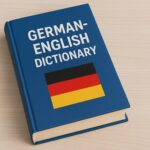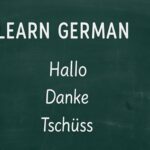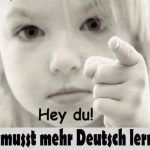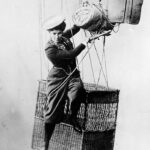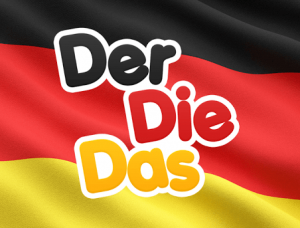 Memorizing the gender of countless German nouns can be pretty frustrating. For someone who is just starting out with German, this can be really confusing – especially as the genders don’t necessarily seem logical.
Memorizing the gender of countless German nouns can be pretty frustrating. For someone who is just starting out with German, this can be really confusing – especially as the genders don’t necessarily seem logical.
German nouns can be masculine, feminine or neuter, and this gender affects the form of the articles (and the adjectives) we use:
Feminine: die Frau (the woman)
Masculine: der Mann (the man)
Neuter: das Kind (the child)
There are some general classes of things that always have the same gender:
Masculine:
- male humans and animals (der Mann, der Bock);
- seasons, months, days of the week (der Sommer, der Januar, der Montag);
- winds, weather, points of the compass (der Schnee, der Norden);
- rocks, minerals (der Granit, der Diamant);
- alcoholic and plant-based drinks (der Gin, der Kakao);
- makes of car (der BMW, der Audi);
- rivers outside Germany (der Ganges, der Nil);
- monetary units (der Euro, der Dollar);
- mountains, mountain ranges (der Brocken, der Spessart)
Feminine
- female humans and animals (die Frau, die Henne);
- airplanes, motor-bikes, ships (die Boeing, die “Bismark”);
- rivers inside Germany (die Weser, die Donau);
- names of numerals (die eins, die Milliard)
Neuter
- young humans and animals (das Baby, das Lamm);
- metals, chemicals, scientific units (das Gold, das Aspirin, das Volt);
- letters of the alphabet, musical notes (Das A, das hohe C);
- other parts of speech used as nouns (das Aber, das modern Deutsch);
- hotels, cafes, restaurants, cinemas (das “Hilton”);
- continents, countries, towns (das alte Europa, das neue Polen, das geteilte Berlin)
How to Identify Masculine Nouns in German (der/ein)
Masculine German nouns take the definite article der (the) and indefinite ein (a/an).
To figure out whether a word is masculine, look for the following word endings:
-er, -el, -ling, -ich, -ig, -ner, -ismus, -or, -us, -eich, -ant
Following this rule, you’ll be correct around 80% of the time.
Also, anything to do with calendar dates tends to be masculine – days, months and seasons fall under this category.
Finally, male animals and weather elements are usually masculine.
From this, you can deduce that the following words are masculine:
- der Autor (author)
- der Vater (father)
- der Mittwoch (Wednesday)
- der Regen (rain)*
How to Recognize Feminine Nouns in German (die/eine)
Feminine German nouns use the definite article die (the) and indefinite article eine (a/an).
As with masculine nouns, the easiest way to identify a feminine noun is to look at the word ending. Look out for the following word endings:
-e (mostly, as the exception is male persons or animals, such as der Löwe (the lion)), -ie, -heit, -ei, -in, -ik, -keit, – schaft, -ung, -tät, -ur, -tion
Funnily enough, things that would normally be associated with femininity are usually feminine too – like flowers and trees, along with female animals and people.
- die Blume (flower)
- die Familie (family)
- die Mannschaft (team)
How to Identify Neutral Nouns in German (das/ein)
Neutral German nouns take the definite article das (the) and indefinite article ein (a/an).
To spot neutral nouns, look out for the following word endings:
-chen, -o, -lein, -en, -il, -ma, -tel, -ment, -nis, -tum, -um
Most inanimate objects do fall under the category of neutral. Also, most metals, as well as babies (both human and animal) tend to have neutral genders.
Let’s look at some examples.
- das Kind (child)
- das Fragment (fragment)
- das Gold (gold)
The large majority of nouns beginning with Ge- are neuter, so das Gesetz (the law), das Gespräch (the conversation) or das Gebäude (the building) — BUT die Geschichte (probably the most common of the anomalous Ge- nouns) bucks the trend by taking the feminine form. We recommend you pay particular attention to the feminine noun endings, as these crop up very frequently. You should also ensure you internalize the gender of every new noun you learn — don’t just learn Lehrer, learn the word with it’s definite article: der Lehrer. This way you’ll begin to naturally couple articles with nouns, and this will facilitate your use of the German cases (the next little grammatical hurdle in the German language).
